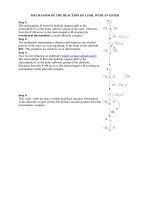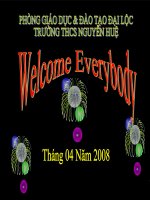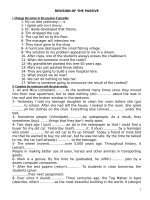Kindred of the dust
Bạn đang xem bản rút gọn của tài liệu. Xem và tải ngay bản đầy đủ của tài liệu tại đây (1.06 MB, 286 trang )
TheProjectGutenbergeBook,KindredoftheDust,byPeterB.Kyne
ThiseBookisfortheuseofanyoneanywhereatnocostandwith
almostnorestrictionswhatsoever.Youmaycopyit,giveitawayor
re-useitunderthetermsoftheProjectGutenbergLicenseincluded
withthiseBookoronlineatwww.gutenberg.net
Title:KindredoftheDust
Author:PeterB.Kyne
ReleaseDate:September26,2004[eBook#13532]
Language:English
Charactersetencoding:ISO-8859-1
***STARTOFTHEPROJECTGUTENBERGEBOOKKINDREDOFTHE
DUST***
E-textpreparedbyStephenSchulze
andtheProjectGutenbergOnlineDistributedProofreadingTeam
KINDREDOFTHEDUST
BY
PETERB.KYNE
AUTHOROF
CAPPYRICKS,THEVALLEYOFTHEGIANTS,WEBSTER—MAN'SMAN,
ETC.
ILLUSTRATEDBY
DEANCORNWELL
1920
TOIRENE
MYDEAR,TYRANNICAL,PRACTICALLITTLEFOSTER-SISTER
WITHOUT WHOSE AID AND COMFORT, HOOTS, CHEERS AND
UNAUTHORIZED STRIKES, THE QUANTITY AND QUALITY OF MY
ALLEGED LITERARY OUTPUT WOULD BE APPRECIABLY
DIMINISHED,THISBOOKISAFFECTIONATELYDEDICATED
CONTENTS
CHAPTERI
CHAPTERII
CHAPTERIII
CHAPTERIV
CHAPTERV
CHAPTERVI
CHAPTERVII
CHAPTERVIII
CHAPTERIX
CHAPTERX
CHAPTERXI
CHAPTERXII
CHAPTERXIII
CHAPTERXIV
CHAPTERXV
CHAPTERXVI
CHAPTERXVII
CHAPTERXVIII
CHAPTERXIX
CHAPTERXX
CHAPTERXXI
CHAPTERXXII
CHAPTERXXIII
CHAPTERXXIV
CHAPTERXXV
CHAPTERXXVI
CHAPTERXXVIII
CHAPTERXXIX
CHAPTERXXX
CHAPTERXXXI
CHAPTERXXXII
CHAPTERXXXIII
CHAPTERXXXIV
CHAPTERXXXV
CHAPTERXXXVI
CHAPTERXXXVII
CHAPTERXXXVIII
CHAPTERXXXIX
CHAPTERXL
CHAPTERXLI
CHAPTERXLII
CHAPTERXLIII
CHAPTERXLIV
CHAPTERXLV
CHAPTERXLVI
CHAPTERXLVII
THEILLUSTRATIONS
HectorMcKayewasbredofanacquisitiverace
Shestoletotheoldsquarepianoandsangforhim
Donaldbowedhishead,"Ican'tgiveherup,father"
"I'mamanwithoutahomeandyou'vejustgottotake
mein,Nan"
I
In the living-room of The Dreamerie, his home on Tyee Head, Hector
McKaye, owner of the Tyee Lumber Company and familiarly known as "The
Laird,"waswonttositinhishoursofleisure,smokingandbuildingcastlesin
Spain—forhissonDonald.Hereheplannedtheacquisitionofmoretimberand
theinstallationofanelectric-lightplanttofurnishlight,heat,andpowertohis
owntownofPortAgnew;everandanonhewouldgazethroughtheplate-glass
windowsouttoseaandwatchforhisshipstocomehome.WheneverTheLaird
puthisdreamsbehindhim,healwayslookedseaward.Inthecourseoftime,his
home-bound skippers, sighting the white house on the headland and knowing
that The Laird was apt to be up there watching, formed the habit of doing
something that pleased their owner mightily. When the northwest trades held
steady and true, and while the tide was still at the flood, they would scorn the
servicesofthetugthatwentouttomeetthemandcomerampingintothebight,
alltheirwhitesailssetandthegloryofthesunuponthem;astheysweptpast,
far below The Laird, they would dip his house-flag—a burgee, scarlet-edged,
withafirtreeembroideredingreenonafieldofwhite—thesymboltotheworld
thatherewasaMcKayeship.Andwhenthehouse-flagflutteredhalf-waytothe
deck and climbed again to the masthead, the soul of Hector McKaye would
thrill.
"Guidlads!Mybonnybravelads!"hewouldmurmuraloud,withjustatouch
of his parents' accent, and press a button which discharged an ancient brass
cannonmountedattheedgeofthecliff.Wheneverhesawoneofhisshipsinthe
offing—andhecouldidentifyhisshipsasfarashecouldseethem—heordered
thegardenertoloadthiscannon.
Presently the masters began to dip the house-flag when outward bound, and
discoveredthat,whetherTheLairdsatathisdeskinthemillofficeorwatched
fromthecliff,theydrewanansweringsalute.
Thiswastheirhailandfarewell.
Onemorning,thebarkentineHathor,towingoutforDelagoaBay,dippedher
house-flag,andthewatchattheirstationsbenttheirgazeuponthehouseonthe
cliff.Longtheywaitedbutnoansweringsalutegreetedtheacknowledgmentof
theiraffectionateandwillingservice.
Themate'sglancemetthemaster's.
"Theoldlairdmustbeunwell,sir,"heopined.
Butthemastershookhishead.
"Hewastohavehaddinneraboardwithuslastnight,butearlyintheafternoon
he sent over word that he'd like to be excused. He's sick at heart, poor man!
Daneytellsmehe'sheardthetowngossipaboutyoungDonald."
"Thelad'sagentleman,sir,"thematedefended."He'llnotdisgracehispeople."
"He'syoung—andyouthmustbeserved.Man,Iwasyoungmyselfonce—and
NanoftheSawdustPileisnotawomanayoungmanwouldlookatonceandgo
hisway."
InthesouthwesterncornerofthestateofWashington,nestledintheBightof
Tyee and straddling the Skookum River, lies the little sawmill town of Port
Agnew.Itisacommunitysomewhatdifficulttolocate,fortheBightofTyeeis
not of sufficient importance as a harbor to have won consideration by the
cartographers of the Coast and Geodetic Survey, and Port Agnew is not quite
fortyyearsold.Consequently,itappearsonlyontheverylateststatemapsandin
thesmallestpossibletype.
WhenHectorMcKayefirstgazeduponthebight,thetranscontinentallineshad
not yet begun to consider the thrusting of their tentacles into southwestern
Washington, and, with the exception of those regions where good harbors had
partially solved the problem of transportation, timber in Washington was very
cheap. Consequently, since Hector McKaye was one of those hardy men who
never hesitate to take that which no man denies them, he reached forth and
acquiredtimber.
Astripoflandaquarterofamilewideandfrontingthebeachwasbarrenof
commercial timber. As grazing-land, Hector McKaye was enabled to file on a
full section of this, and, with its acquisition, he owned the key to the outlet.
While "proving up" his claim, he operated a general store for trading with the
Indiansandtrappers,andatthisheprospered.Fromtimetotimehepurchased
timber-claims from the trappers as fast as they "proved up," paying for these
stumpage-pricesvaryingfromtwenty-fivetofiftycentsperthousand.
Onhisfrequenttripstotheouterworld,McKayeextolledtheopportunitiesfor
acquiring good timber-claims down on the Skookum; he advertised them in
letters and in discreet interviews with the editors of little newspapers in the
sawmill towns on Puget Sound and Grays Harhor; he let it be known that an
honestfellowcouldsecurecreditforawinter'sprovisionsfromhim,andpayfor
itwithpeltsinthespring.
Theinfluxofhomesteadersincreased—singlemen,forthemostpart,andpoor
—menwholaboredsixmonthsoftheyearelsewhereandlivedtheremainingsix
months in rude log huts on their claims down on the Skookum. And when the
requirementsofthehomesteadlawshadbeencompliedwithandapatenttotheir
quarter-sectionobtainedfromtheLandOfficeinWashington,thehomesteaders
werereadytosellandmoveontootherandgreenerpastures.Sotheysoldtothe
only possible purchaser, Hector McKaye, and departed, quite satisfied with a
profitwhichtheyflatteredthemselveshadbeentheresultoftheirownprudence
andforesight.
Thus,inthecourseoftenyears,HectorMcKaye'acquiredtenthousandacres
of splendid Douglas fir and white cedar. But he had not been successful in
acquiring claims along the south bank of the Skookum. For some mysterious
reason, he soon found claims on the north bank cheaper and easier to secure,
albeit the timber showed no variance in quantity or quality. Discreet
investigations brought to light the fact that he had a competitor—one Martin
Darrow, who dwelt in St. Paul, Minnesota. To St. Paul, therefore, journeyed
HectorMcKaye,andsoughtanaudiencewithMartinDarrow.
"I'mMcKaye,fromtheSkookumRiver,Washington,"heannounced,without
preamble.
"I'vebeenexpectingyou,Mr.McKaye,"Darrowreplied."Gotapropositionto
submit?"
"Naturally,orIwouldn'thavecometoSt.Paul.Inoticeyouhaveaweakness
forthetimberonthesouthbankoftheSkookum.You'veopposedmetherehalf
adozentimesandwon.IhavealsoobservedthatIhaveafreehandwithclaims
northoftheriver.That'sfair—andthere'stimberenoughfortwo.Hereafter,I'll
keeptomyownsideoftheriver."
"Iseewe'regoingtocometoanunderstanding,Mr.McKaye.Whatwillyou
givemetosticktomysideoftheriver?"
"An outlet through the bight for your product when you commence
manufacturing.Icontrolthelowerhalf-mileoftheriverandtheonlyavailable
mill-sites.I'llgiveyouamill-siteifyou'llpayhalftheexpenseofdigginganew
channelfortheSkookum,andchangingitscoursesoitwillemergeintothestill,
deepwaterundertheleeofTyeeHead."
"We'lldobusiness,"saidMartinDarrow—andtheydid,althoughitwasmany
years after Hector McKaye had incorporated the Tyee Lumber Company and
foundedhistownofPortAgnewbeforeDarrowbeganoperations.
Truetohispromise,McKayedeededhimamill-andtown-site,andhefounded
a settlement on the eastern edge of Port Agnew, but quite distinct from it, and
called it Darrow, after himself. It was not a community that Hector McKaye
approvedof,foritwassqualidandunsanitary,anditsuntidy,unpaintedshacks
of rough lumber harbored southern European labor, of which Hector McKaye
wouldhavenone.InDarrow,also,therewerethreegroggeriesandagamblinghouse,withtheusualconcomitantofwomenwhoseprofessionistheoldestand
thesaddestintheworld.
FollowinghisdiscoveryoftheBightofTyee,aquarterofacenturypassed.A
man may prosper much in twenty-five years, and Hector McKaye, albeit
American born, was bred of an acquisitive race. When his Gethsemane came
upon him, he was rated the richest lumberman in the state of Washington; his
twenty-thousandboard-feetcapacityperdaysawmillhadgrowntofivehundred
thousand,histenthousandacrestoahundredthousand.Twothousandpersons
lookedtohimandhisenterprisefortheirbreadandbutter;heownedafleetof
halfadozensteam-schoonersandsixteenbigwind-jammers;heownedatown
which he had called Port Agnew, and he had married and been blessed with
children.Andbecausehisambitionnolongerdemandedit,hewasnolongera
miser.
HECTORMCKAYEWASBREDOFANACQUISITIVERACE.
HECTORMCKAYEWASBREDOFANACQUISITIVERACE.
Inaword,hewasahappyman,andinaffectionateprideandasatributetohis
might, his name and an occasional forget-me-not of speech which clung to his
tongue, heritage of his Scotch forebears, his people called him "The Laird of
Tyee." Singularly enough, his character fitted this cognomen rather well.
Reserved, proud, independent, and sensitive, thinking straight and talking
straight,amanofbrusqueyettendersentimentwhichwaswonttomanifestitself
unexpectedly, it had been said of him that in a company of a hundred of his
mental, physical, and financial peers, he would have stood forth preeminently
anddistinctively,likealonetreeonahill.
AlthoughTheLairdlovedhistownofPortAgnew,becausehehadcreatedit,
hehadnot,nevertheless,residedinitforsomeyearspriortotheperiodatwhich
thischroniclebegins.AttheveryapexoftheheadlandthatshelterstheBightof
Tyee, in a cuplike depression several acres in extent, on the northern side and
ideally situated two hundred feet below the crest, thus permitting the howling
southeasterstoblowoverit,HectorMcKaye,inthefulnessoftime,hadbuiltfor
himself a not very large two-story house of white stone native to the locality.
Thishouse,inthecenterofbeautifulandwell-keptgrounds,wasdesignedinthe
shape of a letter T, with the combination living-room and library forming the
entire leg of the T and enclosed on all three sides by heavy plate-glass French
windows.
Thus, The Laird was enabled to command a view of the bight, with Port
Agnewnestledfarbelow;ofthesilverstripthatistheSkookumRiverflowing
downtotheseathroughthelogged-overlands,nowchecker-boardedintolittle
green farms; of the rolling back country with its dark-green mantle of fir and
white cedar, fading in the distance to dark blue and black; of the yellow
sandstone bluffs of the coast-line to the north, and the turquoise of the Pacific
outtothehorizon.
ThisroomHectorMcKayeenjoyedbestofallthingsinlife,withtheexception
ofhisfamily;ofhisfamily,hissonDonaldwasnearestanddearesttohim.This
boyhelovedwithafierceandhungrylove,intensified,doubtless,becausetothe
young Laird of Tyee, McKaye was still the greatest hero in the world. To his
wife, The Laird was no longer a hero, although in the old days of the upward
climb,whenhehadfiercelyclaimedherandsupportedherbythesweatofhis
brow, he had been something akin to a god. As for Elizabeth and Jane, his
daughters, it must be recorded that both these young women had long since
ceasedtoregardtheirfatherasanythingexceptanunfailingsourceofrevenue—
anolddearwhoclungtoPortAgnew,homelyspeech,andhomelyways,hooting
good-naturedly at the pretensions of their set, and, with characteristic Gaelic
stubbornness,insistinguponlivingandenjoyingthekindoflifethatappealedto
himwithpeculiarforceastheonlykindworthliving.
Indeed,inmorethanonehumblehomeinPortAgnew,ithadbeensaidthatthe
twoMcKayegirlsweresecretlyashamedoftheirfather.Thisbecausefrequently,
in a light and debonair manner, Elizabeth and Jane apologized for their father
and exhibited toward him an indulgent attitude, as is frequently the case with
overeducated and supercultured young ladies who cannot recall a time when
theirslightestwishhasnotbeengratifiedandcannotforgetthatthegoodfairy
who gratified it once worked hard with his hands, spoke the language and
acquiredthehabitsofhiscomradesinthebattleforexistence.
Ofcourse,ElizabethandJanewouldhaveresentedthisanalysisoftheirmental
attitude toward their father. Be that as it may, however, the fact remained that
bothgirlswereperfunctoryintheirexpressionsofaffectionfortheirfather,but
wildlyextravagantinthemwheretheirmotherwasconcerned.HectorMcKaye
liked it so. He was a man who never thought about himself, and he had
discoveredthatifhegavehiswifeanddaughterseverythingtheydesired,hewas
notapttobenagged.
OnlyononeoccasionhadHectorMcKayedeclaredhimselfmasterinhisown
house,and,attheriskofappearingparadoxical,thiswasbeforethehousehad
beenbuilt.Oneday,whiletheystilloccupiedtheirfirsthome(inPortAgnew),a
housewithamansardroof,twotowers,jig-sawandscroll-workgalore,andthe
usualcast-ironmastiffsanddeeronthefrontlawn,TheLairdhadcomegleefully
homefromatriptoSeattleandproudlyexhibitedtheplansforanewhouse.
Ensued examination and discussion by his wife and the young ladies. Alas!
TheLaird'sdreamofahomedidnotcorrespondwiththatofhiswife,although,
asamatteroffact,theladyhadnoideasonthesubjectbeyondaninsistencethat
the house should be "worthy of their station," and erected in a fashionable
suburb of Seattle. Elizabeth and Jane aided and abetted her in clamoring for a
Seattlehome,althoughbothwerequicktonotetheadvantagesofapicturesque
countryhomeonthecliffsabovethebight.Theyurgedtheirfathertobuildhis
house,butcondemnedhisplans.Theydesiredahousesomethree timeslarger
thantheblue-printscalledfor.
Hector McKaye said nothing. The women chattered and argued among
themselves until, Elizabeth and Jane having vanquished their mother, all three
movedbrisklytotheattackuponTheLaird.Whentheyhadtalkedthemselves
outandawaitedareply,hegaveitwiththesimpledirectnessofhisnature.Itwas
evidentthathehadgivenhisanswerthought.
"IcanneverliveinSeattleuntilIretire,andIcannotretireuntilDonaldtakes
myplaceinthebusiness.ThatmeansthatDonaldmustlivehere.Consequently,
IshallspendhalfofmytimewithyouandthegirlsinSeattle,mother,andthe
otherhalfwithDonaldhere.Whenwebuiltourfirsthome,youhadyourway—
andI'velivedinthisarchitecturalhorroreversince.Thistime,I'mgoingtohave
my own way—and you've lived with me long enough to know that when I
declareforawillofmyown,I'llnotbedenied.WellIrealizeyouandthegirls
haveoutgrownPortAgnew.There'snaughtheretointerestyou,andIwouldnot
havewomano'mineunhappy.SoplanyourhouseinSeattle,andI'llbuilditand
sparenoexpense.Asforthishouseontheheadland,youhavenointerestinit.
Donald's approved the plans, and him only will I defer to. 'Twill be his house
someday—hisandhiswife's,whenhegetsone.Andtherewillbenomoretalk
ofit,mydears.I'llnottakeitkindlyofyetointerfere."
II
Ataperiodinhisupwardclimbtofortune,whenasyetHectorMcKayehad
notfulfilledhisdreamofafactoryforthemanufactureofhiswasteandshortlengthstockintosash,door,blinds,moldings,andsoforth,hehadbeenwontto
use about fifty per cent. of this material for fuel to maintain steam in the mill
boilers,whiletheremainderpassedoutoverthewaste-conveyortotheslabpile,
whereitwasburned.
The sawdust, however, remained to be disposed of, and since it was not
possibletoburnthisintheslabfireforthereasonthatthewetsawdustblanketed
theflamesandresultedinaprofusionofsmokethatblewbackuponthemillto
the annoyance of the employees, for many years The Laird had caused this
accumulatedsawdusttobehauledtotheedgeofthebightonthenorthsideof
the town, and there dumped in a low, marshy spot which formerly had bred
millionsofmosquitoes.
Subsequently, in the process of grading the streets of Port Agnew and
excavating cellars, waste dirt had been dumped with the sawdust, and,
occasionally,whenhighwintertidessweptoverthespot,sand,smallstones,seashells,andkelpwereaddedtothemixture.Andasifthiswerenotsufficient,the
citizens of Port Agnew contributed from time to time old barrels and bottles,
yard-sweepings,tincans,andsuperannuatedstovesandkitchenutensils.
Slowly this dump crept out on the beach, and in order to prevent the
continuous attrition of the surf upon the outer edge of it from befouling the
white-sandbathing-beachfartheruptheBightofTyee,TheLairdhaddrivena
double row of fir piling parallel with and beyond the line of breakers. This
piling, driven as close together as possible and reenforced with two-inch
planking between, formed a bulkhead with the flanks curving in to the beach,
thus insuring practically a water-tight pen some two acres in extent; and, with
thepassageofyears,thisbecameabouttwo-thirdsfilledwiththewastefromthe
town.HadTheLairdeverdecidedtolayclaimtotheSawdustPile,therewould
havebeennoneinPortAgnewtocontesthistitle;sincehedidnotclaimit,the
SawdustPilebecameasortofNoMan'sLand.
AfterTheLairderectedhisfactoryandbegantosalvagehiswaste,theslabfire
wentoutforeverforlackoffuel,andthemodicumofwastefromthemilland
factory,togetherwiththesawdust,wasutilizedforfuelinanelectric-lightplant
that furnished light, heat, and power to the town. Consequently, sawdust no
longer mercifully covered the trash on the Sawdust Pile as fast as this trash
arrived, and, one day, Hector McKaye, observing this, decided that it was an
unsightly spot and not quite worthy of his town of Port Agnew. So he
constructed a barge somewhat upon the principle of a patent dump-wagon,
mooredittotheriver-bank,createdagarbagemonopolyinPortAgnew,andsold
itforfivethousanddollarstoapairofambitiousItalians.Withtheproceedsof
thisgarbagedeal,TheLairdbuiltaveryprettylittlepubliclibrary.
Having organized his new garbage system (the garbage was to be towed
twenty miles to sea and there dumped), The Laird forbade further dumping on
theSawdustPile.Whenthenecessityformoredredger-workdeveloped,inorder
tokeepthedeepchanneloftheSkookumfromfilling,hehadthepipesfromthe
dredgerrunouttotheSawdustPileandcoveredtheunsightlyspotwithsixfeet
ofrichriver-siltuptothelevelofthepiling.
"And now," said Hector McKaye to Andrew Daney, his general manager,
"whenthatsettles,we'llrunalighttrackouthereandusetheSawdustPilefora
drying-yard."
The silt settled and dried, and almost immediately thereafter a squatter took
possessionoftheSawdustPile.Acrosstheneckofthelittlepromontory,andin
linewithextremehigh-watermarkoneachside,heerectedadriftwoodfence;he
had a canvas, driftwood, and corrugated-iron shanty well under way when
HectorMcKayeappearedonthesceneandbadehimapleasantgood-morning.
The squatter turned from his labor and bent upon his visitor an appraising
glance. His scrutiny appearing to satisfy him as to the identity of the latter, he
straightened suddenly and touched his forelock in a queer little salute that left
oneindoubtwhetherhewasaformermemberoftheUnitedStatesnavyorthe
British mercantile marine. He was a threadbare little man, possibly sixty years
old,witharusset,kindlycountenanceandmildblueeyes;apartfromhissalute,
therewasabouthimanintangiblehintofthesea.Hewasbeingassistedinhis
laborsbyaragamuffingirlofperhapsthirteenyears.
"ThinkingofsettlinginPortAgnew?"TheLairdinquired.
"Why,yes,sir.IthoughtthismightmakeagoodsafeanchorageforNanand
me.MynameisCalebBrent.You'reMr.McKaye,aren'tyou?"
TheLairdnodded.
"Ihadanidea,whenIfilledthisspotinandbuiltthatbulkhead,Mr.Brent,that
somedaythiswouldmakeasafeanchorageforsomeofmylumber.Iplanneda
drying-yardhere.What'sthatyou'rebuilding,Brent?Ahen-house?"
CalebBrentflushed.
"Why,no,sir.I'mmakingshifttobuildahomehereforNanandme."
"IsthislittleoneNan?"
Theragamuffingirl,herheadslightlytooneside,hadbeenregardingHector
McKayewithalertcuriositymingledwithfurtiveapprehension.Asheglancedat
hernow,sherememberedhermannersanddroppedhimacourtesy—anelectric,
half-defiant jerk that reminded The Laird of a similar greeting customarily
extendedbysquinch-owls.
Nanwasnotparticularlyclean,andherone-piecedress,ofheavybluenavyuniform cloth was old and worn and spotted. Over this dress she wore a boy's
coarsered-worstedsweaterwithwhite-pearlbuttons.Theskinofherthinneck
wasfineandcreamy;thecalves,ofherbarebrownlegswereshapely,herfeet
small,heranklesdainty.
With the quick eye of the student of character, this man, proud of his own
ancientlineageforallhishumblebeginning,notedthatherhands,thoughbrown
and uncared-for, were small and dimpled, with long, delicate fingers. She had
sea-blue eyes like Caleb Brent's, and, like his, they were sad and wistful; a
frowsywildernessofgoldenhair,veryfineandheldinconfinementatthenape
ofherneckbythesimpleexpedientofapieceoftwine,showedalltooplainly
thelackofamother'scare.
TheLairdreturnedNan'scourtesywithapatronizinginclinationofhishead.
"Yourgranddaughter,Ipresume?"headdressedCalebBrent.
"No; my daughter, sir. I was forty when I married, and Nan came ten years
later.She'sthirteennow,andhermother'sbeendeadtenyears."
Hector McKaye had an idea that the departed mother was probably just as
well,ifnotbetter,off,freeofthebattleforexistencewhichappearedtoconfront
this futile old man and his elf of a daughter. He glanced at the embryo shack
underconstructionand,comparingitwithhisownbeautifulhomeonTyeeHead,
he turned toward the bight. A short distance off the bulkhead, he observed a
staunchforty-footmotor-cruiseratanchor.Shewouldhavebeenthebetterfora
coatofpaint;undeniablyshewasofapiecewithCalebBrentandNan,for,like
them,TheLairdhadneverseenherbefore.
"Yours?"hequeried.
"Yes,sir."
"Youarrivedinher,then?"
"Idid,sir.NanandIcamedownfromBremertoninher,sir."
TheLairdownedmanyships,andhenotedtheslurringofthe"sir"asonlyan
oldsailorcanslurit.AndtherewasanavalbaseatBremerton.
"You'reanoldsailor,aren'tyou,Brent?"hepursued.
"Yes, sir. I was retired a chief petty officer, sir. Thirty years' continuous
service,sir—andIwasinthemercantilemarineatsixteen.I'veservedmytime
asashipwright.Am—amIintrudinghere,sir?"
TheLairdsmiled,andfollowedthesmilewithabriefchuckle.
"Well—yes and no. I haven't any title to this land you've elected to occupy,
although I created it. You see, I'm sort of lord of creation around here. My
peoplecallme'TheLairdofTyee,'andnobodybutastrangerwouldhavehad
the courage to squat on the Sawdust Pile without consulting me. What's your
ideaaboutit,Brent?"
"I'llgoifyouwantmeto,sir."
"Imeanwhat'syourideaifyoustay?Whatdoyouexpecttodoforaliving?"
"You will observe, sir, that I have fenced off only that portion of the dump
beyondhigh-watermark.Thattakesinabouthalfofit—aboutanacreandahalf.
Well, I thought I'd keep some chickens and raise some garden truck. This silt
willgrowanything.AndIhavemylaunch,andcandosometowing,maybe,or
take fishing parties out. I might supply the town with fish. I understand you
importyourfishfromSeattle—andwiththesearighthereatyourdoor."
"Isee.Andyouhaveyourthree-quarterspayasaretiredchiefpettyofficer?"
"Yes,sir."
"Anythinginbank?Idonotaskthesepersonalquestions,Brent,outofmere
idlecuriosity.Thisismytown,youknow,andthereisnopovertyinit.I'mrather
proudofthat,soI—"
"Iunderstand,sir.That'swhyIcametoPortAgnew.Isawyoursonyesterday,
andhesaidIcouldstay."
"Oh!Well,that'sallright,then.IfDonaldtoldyoutostay,stayyoushall.Did
hegiveyoutheSawdustPile?"
"Yes,sir;hedid!"
"Well, I had other plans for it, Brent; but since you're here, I'll offer no
objection."
Nannowpipedup.
"Wehaven'tanymoneyinbank,Mr.Laird,butwehavesomesavedup."
"Indeed!That'sencouraging.Wheredoyoukeepit?"
"Inthebrownteapotinthegalley.We'vegotahundredandtendollars."
"Well,mylittlelady,Ithinkyoumightdowelltotakeyourhundredandten
dollars out of the brown teapot in the galley and deposit it in the Port Agnew
bank.Supposethatmotor-cruisershouldspringaleakandsink?"
Nan smiled and shook her golden head in negation. They had beaten round
CapeFlatteryinthatboat,andshehadconfidenceinit.
"Would you know my boy if you should see him again, Nan?" The Laird
demandedsuddenly.
"Oh,yes,indeed,sir!He'ssuchaniceboy."
"I think, Nan, that if you asked him, he might help your father build this
house."
"I'llseehimthisafternoonwhenhecomesoutofhighschool,"Nandeclared.
"You might call on Andrew Daney, my general manager," The Laird
continued,turningtoCalebBrent,"andmakeadickerwithhimforhaulingour
garbage-scowouttoseaanddumpingit.Iobservethatyourmotor-boatisfitted
with towing-bitts. We dump twice a week. And you may have a monopoly on
freshfishifyoudesireit.Wehavenofishermenhere,becauseIdonotcarefor
Greeks and Sicilians in Port Agnew. And they're about the only fishermen on
thiscoast."
"Thankyou,Mr.McKaye."
"Mindyoudon'tabuseyourmonopoly.Ifyoudo,I'lltakeitawayfromyou."
"Youareverykind,sir.AndIcanhavetheSawdustPile,sir?"
"Yes; since Donald gave it to you. However, I wish you'd tear down that
patchworkfenceandreplaceitwithadecentjobtheinstantyoucanaffordit."
"Ah, just wait," old Brent promised. "I know how to make things neat and
pretty and keep them shipshape. You just keep your eye on the Sawdust Pile,
sir."Theoldwind-bittenfaceflushedwithpride;thefadedsea-blueeyesshone
withjoyousanticipation."I'veobservedyourprideinyourtown,sir,andbeforeI
getthrough,I'llhaveaprettierplacethanthebestofthem."
Afewdayslater,TheLairdlookedacrosstheBightofTyeefromhishomeon
Tyee Head, and through his marine glasses studied the Sawdust Pile. He
chuckled as he observed that the ramshackle shanty had disappeared almost as
soon as it had been started and in its place a small cottage was being erected.
Therewasapileoflumberintheyard—brightlumber,freshfromthesaws—and
oldCalebBrentandthemotherlessNanwerebeingassistedbytwocarpenters
ontheTyeeLumberCompany'spay-roll.
WhenDonaldcamehomefromschoolthatnight,TheLairdaskedhimabout
the inhabitants of the Sawdust Pile with relation to the lumber and the two
carpenters.
"Oh, I made a trade with Mr. Brent and Nan. I'm to furnish the lumber and
furniture for the house, and those two carpenters weren't very busy, so Mr.
Daney told me I could have them to help out. In return, Mr. Brent is going to
buildmeasloopandteachmehowtosailit."
TheLairdnodded.
"When his little home is completed, Donald," he suggested presently, "you
mighttakeoldBrentandhisgirlovertoouroldhouseintownandletthemhave
whatfurnituretheyrequire.Seeifyoucannotmanagetosawoffsomeofyour
mother's antiques on them," added whimsically. "By the way, what kind of
shantyisoldBrentgoingtobuild?"
"A square house with five rooms and a cupola fitted up like a pilot-house.
There's to be a flagpole on the cupola, and Nan says they'll have colors every
nightandmorning.Thatmeansthatyouhoisttheflaginthemorningandsalute
it,andwhenyouhaulitdownatnight,yousaluteitagain.Theydothatupatthe
Bremertonnavy-yard."
"That'sratheranice,sentimentalidea,"HectorMcKayereplied."Iratherlike
oldBrentandhisgirlforthat.WeAmericansaretoopronetotakeourflagand
whatitstandsforratherlightly."
"Nanwantsmetohavecolorsuphere,too,"Donaldcontinued."Thenshecan
seeourflag,andwecanseetheirsacrossthebight."
"All right," The Laird answered heartily, for he was always profoundly
interestedinanythingthatinterestedhisboy."I'llhavethewoodsbossgetouta
niceyoungcedarwith,say,atwelve-inchbutt,andwe'llmakeitintoaflagpole."
"If we're going to do the job navy-fashion, we ought to fire a sunrise and
sunsetgun,"Donaldsuggestedwithalltheenthusiasmofhissixteenyears.
"Well,Ithinkwecanaffordthat,too,Donald."
Thus it came about that the little brass cannon was installed on its concrete
baseonthecliff.Andwhentheflagpolehadbeenerected,oldCalebBrentcame
uponeday,builtalittlemoundofsmooth,sea-washedcobblestonesroundthe
base,andwhitewashedthem.Evidentlyhewasapridefullittleman,andlikedto
see things done in a seamanlike manner. And presently it became a habit with
TheLairdtowatchnightandmorning,forthelittlepin-prickofcolortoflutter
forth from the house on the Sawdust Pile, and if his own colors did not break
forth on the instant and the little cannon boom from the cliff, he was annoyed
anddemandedanexplanation.
III
HectorMcKayeandhisclose-mouthedgeneralmanager,AndrewDaney,were
the only persons who knew the extent of The Laird's fortune. Even their
knowledgewasapproximate,however,forTheLairddislikedtodeludehimself,
and carried on his books at their cost-price properties which had appreciated
tremendously in value since their purchase. The knowledge of his wealth
brought to McKaye a goodly measure of happiness—not because he was of
Scottish ancestry and had inherited a love for his baubees, but because he was
descendedfromafierce,proudScottishclanandwealthspelledindependenceto
himandhis.
The Laird would have filled his cup of happiness to overflowing had he
marriedalessmediocrewomanorhadheraisedhisdaughtersashehadhisson.
Thegirls'upbringinghadbeenleftentirelyintheirmother'shands.Notsowith
youngDonald,however—whereforeitwasabywordinPortAgnewthatDonald
washisfather'sson,averitablechipoftheoldblock.
Bysomeuncannyalchemy,hardcashappearstosoftentheheadsandrelaxthe
muscles of rich men's sons—at least, such had been old Hector's observation,
and on the instant that he first gazed upon the face of his son, there had been
borninhimamightyresolvethat,comewhatmight,hewouldnothaveitsaidof
him that he had made a fool of his boy. And throughout the glad years of his
fatherhood,withthesternpietyofhisraceandhisfaith,hehadkneltnightand
morning beside his bed and prayed his God to help him not to make a fool of
Donald—tokeepDonaldfrommakingafoolofhimself.
When Donald entered Princeton, his father decided upon an experiment. He
hadraisedhisboyright,andtrainedhimfortheraceoflife,andnowTheLaird
feltthat,likeathoroughbredhorse,hissonfacedthebarrier.Wouldhemakethe
run,orwouldhe,intheparlanceofthesportingworld,"dogit?"Wouldhisfour
years at a great American university make of him a better man, or would he
degenerateintoasnobandadrone?
Withcharacteristiccourage,TheLairddecidedtogivehimampleopportunity
tobecomeeither,for,asoldHectorremarkedtoAndrewDaney:"Ifthelad'sthe
McKayeIthinkheis,nothingcanharmhim.Ontheotherhand,ifI'mmistaken,
Iwanttoknowitintime,formymoneyandmyPortAgnewLumberCompany
is a trust, and if he can't handle it, I'll leave it to the men who can—who've
helpedmecreateit—andDonaldshallearnhisbreadbythesweatofhisbrow.
Tools,"headded,"belongtothementhatcanusethem."
WhenDonaldstartedEastforcollege,oldHectoraccompaniedhimasfaras
Seattle.Onthewayup,therewassomeman-talkbetweenthem.Inhisyouth,old
Hectorhadnotbeenanangel,whichistostatethathehadbeenalumberjack.
He knew men and the passions that beset them—particularly when they are
young and lusty—and he was far from being a prude. He expected his son to
raiseacertainamountofwildoats;nay,hedesiredit,forfullwellheknewthat
when the fires of youth are quenched, they are liable to flare disgracefully in
middlelifeoroldage.
"Neverpigit,myson,"washisfinaladmonition."Raisehellifyoumust,butif
youloveyouroldfather,beagentlemanaboutit.You'vesprungfromaclano'
men,notmollycoddles."
"Hencetheexpression:'WhenHectorwasapup,'"Donaldrepliedlaughingly.
"Well,I'lldomybest,father—only,ifIstubmytoe,youmustn'tbetoohardon
me.Remember,please,thatI'monlyhalfScotch."
Atparting,TheLairdhandedhissonacheckfortwenty-fivethousanddollars.
"This is the first year's allowance, Donald," he informed the boy gravely. "It
should not require more than a hundred thousand dollars to educate a son of
mine, and you must finish in four years. I would not care to think you dull or
lazy."
"Doyouwishanaccounting,father?"
TheLairdshookhishead.
"Keepingbookswaseverasorrytrade,myson.I'llreadtheaccountinginyour
eyewhenyoucomebacktoPortAgnew."
"Oh!"saidyoungDonald.
At the end of four years, Donald graduated, an honor-man in all his studies,
andinthelobbyofthegymnasium,wheretheathleticheroesofPrincetonleave
theirrecordtoposterity,HectorMcKayereadhisson'sname,for,ofcourse,he
was there for commencement. Then they spent a week together in New York,
followingwhicholdHectorannouncedthatoneweekofNewYorkwasaboutall
hecouldstand.Thetalltimberwascallingforhim.
"Hoot, mon!" Donald protested gaily. He was a perfect mimic of Sir Harry
Lauderathisbroadest."Y'evenaehadabitholidayinallyerlife.Wha'spierye,
HectorMcKaye,toatriparoondtheworl',wi'aweevisittaetheauldclaninthe
Hielands?"
"Willyoucomewithme,son?"TheLairdinquiredeagerly.
"Certainlynot!Youshallcomewithme.Thisistobemyparty."
"Can you stand the pressure? I'm liable to prove an expensive traveling
companion."
"Well,there'ssomethingradicallywrongwithbothofusifwecan'tgetbyon
twohundredthousanddollars,dad."
TheLairdstarted,andthenhisScotchsenseofhumor—and,forallthefamed
wit of the Irish, no humor on earth is so unctuous as that of the Scotch—
commencedtobubbleup.Hesuspectedajokeonhimselfandwaspreparedto
meetit.
"Willyoudemandanaccounting,myson?"
Donaldshookhishead.
"Keepingbookswaseverasorrytrade,father,I'llreadtheaccountinginyour
eyewhenyougetbacktoPortAgnew."
"Youbrawbigscoundrel!You'vebeenuptosomething.Tellitme,man,orI'll
diewi'thesuspenseofit."
"Well,"Donaldreplied,"Ilivedontwenty-fivehundredayearincollegeand
ledahappylife.Ihadaheapoffun,andnothingwentbymesofastthatIdidn't
atleastgetatail-feather.Mycollegeeducation,therefore,costmetenthousand
dollars,andImanagedtosqueezearoadsterautomobileintothat,also.Withthe
remainingninetythousand,Itookaflierinthirty-ninehundredacresofredcedar
up the Wiskah River. I paid for it on the instalment plan —yearly payments
securedbyfirstmortgageatsixpercent.,and——"
"Whocruiseditforyou?"TheLairdalmostshouted."I'lltrustnocruiserbut
myownDavidMcGregor."
"I realized that, so I engaged Dave for the job. You will recall that he and I
took a two months' camping-trip after my first year in Princeton. It cruised
eightythousandfeettotheacre,andIpaidtwodollarsandahalfperthousand
forit.Ofcourse,wedidn'tsucceedincruisinghalfofit,butwerodethroughthe
remainder, and it all averaged up very nicely. And I saw a former cruise of it
madebyadisinterestedcruiser——"
TheLairdhadbeendoingmentalarithmetic.
"It cost you seven hundred and eighty thousand dollars—and you've paid
ninety thousand, principal and interest, on account. Why, you didn't have the
customarytenpercent,ofthepurchase-priceasaninitialpayment!"
"The owner was anxious to sell. Besides, he knew I was your son, and I
supposeheconcludedthat,aftergettingninetythousanddollarsoutofmeatthe
endofthreeyears,you'dhavetocometomyrescuewhenthebalancefelldue—
inalump.Ifyoudidn't,ofcoursehecouldforeclose."
"I'llsaveyou,myson.Itwasagooddeal—asplendiddeal!"
"You do not have to, dad. I've sold it—at a profit of an even two hundred
thousanddollars!"
"Lad,whydidyoudoit?Whydidn'tyoutakemeintoyourconfidence?That
cedarisworththreeandahalf.Inafewyears,'twillbeworthfive."
"Irealizedthat,father,but—abirdinthehandisworthtwointhebush—and
I'maproudsortofdevil.Ididn'twanttoruntoyouforhelponmyfirstdeal,
even though I knew you'd come to my rescue and ask no questions. You've
always told me to beware of asking favors, you know. Moreover, I had a very
friendlyfeelingtowardthemanIsoldmyredcedarto;Ihatedtostickhimtoo
deeply."
"You were entitled to your profit, Donald. 'Twas business. You should have
takenit.Ah,lad,ifyouonlyknewtheterriblefouryearsI'vepaidforyonredcedar!"
"YoumeanthesuspenseofnotknowinghowIwasspendingmyallowance?"
TheLairdnodded.









